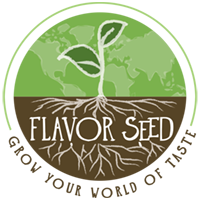The Organic Difference: Purity from Soil to Plate
According to the USDA, “USDA certified organic foods are grown and processed according to federal guidelines addressing, among many factors, soil quality, animal raising practices, pest and weed control, and use of additives. Organic producers rely on natural substances and physical, mechanical, or biologically based farming methods to the fullest extent possible. Produce can be called organic if it’s certified to have grown on soil that had no prohibited substances applied for three years prior to harvest. Prohibited substances include most synthetic fertilizers and pesticides. In instances when a grower has to use a synthetic substance to achieve a specific purpose, the substance must first be approved according to criteria that examine its effects on human health and the environment.1”

Pesticide-Free Food for Better Health
An organic diet contains less pesticides. A pesticide is “any substance used to kill, repel, or control certain forms of plant or animal life that are considered to be pests.”2 Pesticides are used in the farming process of non-organic food; although pesticides are designed to aid humans in killing pests on food, they also pose risks to human health. To reduce this harm, multiple studies have been done to understand what levels are harmful. The World Health Organization, USDA, and FDA have all created a threshold for exposure that is considered safe. However, while these levels are regulated some pesticides “contain heavy metals like copper, which build up in the body over time.”3 Increased exposure to pesticides may be linked to higher risk of Parkinson’s disease, Alzheimer’s disease, and hormone-related cancers. Chronic effects of pesticides may not be detectable by the types of studies done to establish safe limits, so the effects of pesticides on human health is still an on-going study. Fortunately washing, peeling, and trimming produce can remove some pesticides from the outer skin, but ridding this part of produce decreases nutritional value. A better option would be to eat organic foods containing no synthetic pesticides.

Farmer wearing a protective mask spraying crops with pesticides
The Hidden Risks of GMOs: Safety Still Unclear
Speaking of synthetic, another man-made shortcut amongst non-organic food is a genetically modified organism (GMO). A GMO is “an animal, plant, or microbe whose DNA has been altered using genetic engineering techniques.”4 GMO foods have been designed to improve yield, increase resistance to pests and disease, help extend shelf life, and provide a reliable consistency of product. Although this is good for food production, concern for consumer safety has been a controversy. GMO foods are relatively new as they became resourceful in the 1990s. Since it is so new not much is known about their long-term effects on health. Health risks associated with GMO foods are “concerned with toxins, allergens, or genetic hazards.”5 While there are still many unknowns of how GMO foods may affect our health, we do know there are thousands of years of data around the benefits of Mother Nature’s organic provision.
Organic Foods Are Nutrient Powerhouses

An organic diet can promote overall better health by being more nutrient dense. Nutrient content in foods produced organically vary due to difference in ground cover, maturity, and farmer to farmer. However, “multiple studies show that organic varieties provide greater levels of vitamin C, iron, magnesium, and phosphorus than non-organic varieties of the same foods”.6 Organic foods also provide greater levels of antioxidant phytochemicals, which is an anti-inflammatory and protects cells from free radicals that cause cancer. Receiving the maximum levels of vitamins and nutrients in foods allows for your body to be nourished and keeps you healthy.
Taste the Organic Difference
Taste is such a subjective matter. I have eaten a lot of organic and non-organic foods. 95% of the time the organic version looks better, smells better, and has a more distinctive richer flavor. For me it is worth paying a bit more knowing the quality and flavor is there. You don’t have to take my word for it, give organic a try and see if you agree.
Sources:
1) McEvoy, Miles. “Organic 101: What the USDA Organic Label Means.” U.S. Department of Agriculture. 13 Mar 2019. 16 Feb 2023.
2) “Pesticides” National Institute of Environmental Health Sciences. 02 Dec 2022. 16 Feb 2023.
3) Thorpe, Matthew. “Are Pesticides in Foods Harming Your Health?” Healthline. 26 May 2021. 16 Feb 2023.
4 and 5) “Genetically Modified Organisms” National Geographic Society. 20 May 2022. 16 February 2022.
6) Crinnion, Walter J. “Organic foods contain higher levels of certain nutrients, lower levels of pesticides, and may provide health benefits for the consumer” 15 Apr 2010. 16 Feb 2023.



